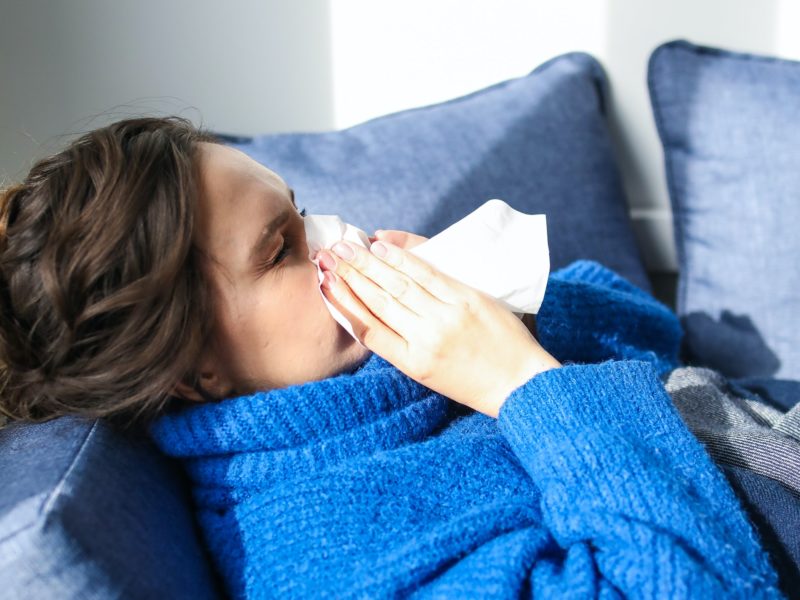Fever, headaches, vomiting, and diarrhea — the price you pay if you don’t get a flu shot. But why does the formula change every year? And what happens if it doesn’t
The flu is a nastly bug that wipes you out for at least a week. Worse, it’s highly contagious, which means you can easily take down your family, friends, and coworkers with you with just one sneeze.
Fortunately, flu shots are an effective way to prevent the malady from infecting others, wrecking your plans, and making you miserable, but only if you get the right one. That’s right: There are shots that work and shots that don’t, depending on the seasonal circumstances and the most prevalent flu viruses you’re likely come into contact with.
At First Med Marin, Barry Landfield, MD, knows exactly what you need to keep flu-free in and near Greenbrae, California. He keeps close track of the various flu viruses in the area and stocks exactly what you need to keep from contracting the latest bug. And understanding the latest bug is the key.
Why a new flu shot each year?
The flu virus is not just one virus. It’s an ever-changing agent that defies a single antidote. Each season, a new strain wreaks havoc on the population, attacking the young, the old, and the weak or compromised. Even if you’re strong and healthy, the flu can take you down quickly and leave you fatigued and run down.
That’s why it’s important to get a flu shot every year and make sure it’s formulated for this season’s most prominent virus.
Which flu shot is most effective?
Knowing which flu shot to give (if you’re a doctor) or get (if you’re a patient) is tricky. And the answer is complicated. More than 100 different countries and their best researchers are dedicated to formulating the right solution every year.
All over the world, scientists test and research all the various strains of the flu virus to determine which are the most likely to attack which region. More importantly, they make recommendations for the proper vaccine to fight those viruses and prevent people from falling ill and spreading the disease.
In the United States, the Food and Drug Administration makes the final decision. Dr. Landfield monitors these reports carefully and knows exactly which vaccine to give you.
Why are some flu shots ineffective?
Despite advanced technology and the best efforts of highly qualified researchers across the globe, the flu can still spread quickly throughout a population and seem resistant to vaccines. Although many variables come into play, two of the most common reasons have to do with science and timing.
How flu vaccines are formulated
The method for producing a vaccine has been the same for many years. Generally, it’s injected into a chicken egg and grown there until it matures and becomes viable for use in a vaccine. It’s then injected into your bloodstream in a very small dose that allows your body to fight it using its natural immune system. Then if you come across the virus again, your body recognizes it and knows exactly how to fight it before it takes full effect and makes you sick.
But there are many strains of the flu virus that don’t grow well in the chicken egg, and, therefore, scientists are unable to create an effective vaccine for those types of viruses.
The timing of the virus
Vaccines take time. From the detection process to the lab work to the growth procedure to the formulation and mass production, the vaccine needs a lot of people and time before it gets to your doctor’s office.
If, for some reason, this year’s virus comes late in the season, there may not be enough warning to get the vaccine produced and distributed. If an unexpected strain of the virus hits at any time, that, too, makes it difficult to develop a successful vaccine.
In most instances, though, the seasonal flu shot is very effective and is your best bet for preventing influenza.
What you should you do if you have the flu
If you did not get a flu shot this year and now you find yourself suffering from the evil virus, we can still help you at First Med Marin. While there’s no instant remedy, there are some medications that can help battle your virus and ease your symptoms. Call our office immediately so we can get you feeling better as soon as possible.
Meanwhile, here are some things you can, and should, do at home:
- Stay away from people because you’re highly contagious
- Keep the liquids coming: broth, water, fruit juice, and sports drinks
- Ease your pain and fever with ibuprofen or acetaminophen
- Run a humidifier to keep the air from getting too dry
Whether you’re looking to prevent or treat the flu, we have you covered. Call today or request an appointment online.










 The Top 5 Ways to Manage Your Type 2 Diabetes
The Top 5 Ways to Manage Your Type 2 Diabetes